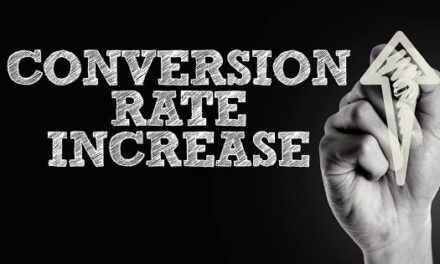Every time I started a new job, I did three things:
- I reviewed how I’d grown as a person during my last job, specifically what new knowledge and skills I’d gained
- I reviewed any feedback that I’d received on my behaviours and also thought about the times I wasn’t being the best version of myself
- I looked at the different things I’d tried in building teams and wrote down what had worked and what hadn’t (and why).

Once I’d done those three things and made some notes about what I would change in my new job, I did a fourth thing: I bought a new suit.
Now, on the face of it you could argue that I was simply following a process to justify buying a new set of clothes for myself (if you know me, you know that there’s more than a grain of truth in this!). Or else that I was starting a new job, so why wouldn’t I buy something new to look good in on day one? Both are valid points.
The thing is, I bought the suit to demonstrate to myself that I was starting a new chapter of my life and that in order to continually be the best version of myself, a new version of me had to show up. The suit embodied that new version of me and served as a reminder of the notes I’d made prior to buying it. (If you’re not a suit wearer it could be a new bag, or a pair of shoes – it’s not the item so much as what it symbolises.)
Our work and life never stops moving and changing. In order to stay relevant, evolve our language and to be able to inspire and motivate a new generation of people we all have to move with it regardless of where we live, where we work or what our job title is.
It’s not good enough to say ‘that’s how we used to do things’ or ‘in my day it was easier’. It’s also not good enough for organisations to accept this kind of behaviour and too many have tolerated it for far too long. The organisations that don’t deal with this behaviour quickly find that their attempts at change fail, whilst those who demand something different, thrive. As I frequently say in my keynote speeches, simply saying you’re going to be more agile doesn’t make it happen. Instilling a different set of expectations and behaviours and daring to fail is how you get the change you’re looking for.
High profile cases such as Kodak and Nokia are consistently rolled out as examples of where intransigence and a lack of foresight led to failure. Even now there are thousands of retailers ready to be consumed by the continuing digital revolution because they are too afraid to look for alternate ways to combat the Amazon juggernaut.
Any business transformation or evolution starts with the people leading it. It starts with what they know about themselves, how they behave and the things they do to build an environment where great work can happen.
This Transformation Triangle is critical for success and should any one of these sides not be addressed the whole structure is weakened. Not only will transformation not be achieved, but the organisation itself may be undermined.
Marketing expert Simon Sinek famously talked about the need for organisations and individuals to articulate what they stand for and that they should ‘Start with Why’. However, no transformation is possible, unless you start with you.
Who You Are
In their book First Break All The Rules, Marcus Buckingham and Curt Coffman found that self-aware individuals are the building blocks of great teams. These are the people that seek feedback on their performance and are consistently challenging themselves to learn new skills, knowledge and communication techniques. They never stand still and can talk about the current zeitgeist with ease. They share what they know and go out of their way to build relationships with others.
Everything from the way they dress to the way they speak is thought about in the context of today and they support political and moral issues that enrich the lives of others.
Chade Meng-Tan in his book Search Inside Yourself said that ‘self-awareness is the key domain of emotional intelligence that enables all the others.’ Whilst a survey in the Huffington Post last year found that poorly performing organisations were more likely to have employees with low self-awareness. Mckinsey went one further in its Culture for a Digital age survey earlier this year by saying ‘The narrow, parochial mentality of workers who hesitate to share information or collaborate across functions and departments can be corrosive to organisational culture.’
Leaders need to find out what they don’t know in order to keep pace with the world and foster approaches that encourage collaboration, not fear.
How You Behave
People who have used their power and influence to destroy the lives of others are being called out around the world. This is – and will continue to be – a difficult, painful but necessary process. These kinds of behaviours have never been acceptable and we need to create a safe space for courageous people to be able to come forward without judgement and share their stories. This also needs to happen in our corporates.
A recent survey commissioned by Allianz found that only 38% of millennials believe their leader is skilled at responding to changing circumstances, the behaviour that they valued the most. Whilst 65% of respondents in the New Rules for the Digital Age survey from Deloitte said that their organisation had no program in place to instil the different behaviours and skills required for digital transformation programs. And make no mistake, the behaviours demanded by today’s workforce are quite different than those that have gone before.
For organisations to deliver digital or cultural transformation programs successfully, leaders must role model the behaviours they expect of others. Never has the mantra ‘You’re only as good as the behaviour you walk past’ been more true than in this age of continually evolving ways of working and communicating.
What You Build
An organisation’s culture is the biggest determinant of any success or failure. Or as Mckinsey put it in its Culture for a Digital Age survey, ‘shortcomings in organisational culture are one of the main barriers to success in the digital age’.
Culture is still the thing that companies spend the least amount of time, money and effort on.
Organisations whose leaders have the right mindset and behaviours are always going to be ahead of those who don’t. The latter often settle for the quick-fix actions of implementing the latest method, restructuring, changing the names of job titles or doing an office refurbishment.
Whilst these are all important in a larger culture evolution program, they often fail because what they build doesn’t address mistakes that have been made before, the behaviours of leaders that are currently holding good people back or the fact that they’re just trying to do too much with the people they have.
General Electric and Nordstrom are two examples held in high esteem by Mckinsey of organisations who are trying to do it a different way. By providing their staff with regular continual improvement programs, giving regular feedback and treating culture as the most important tenet to success, they are reaping the rewards in terms of growth as well as staff engagement and retention.
It should come as no surprise that the organisations that are flourishing have leaders who understand who they are, how they behave and what they need to build to attain continual cultural evolution and, ultimately, success in their sector.
They work hard for their new suits and look great in them.























